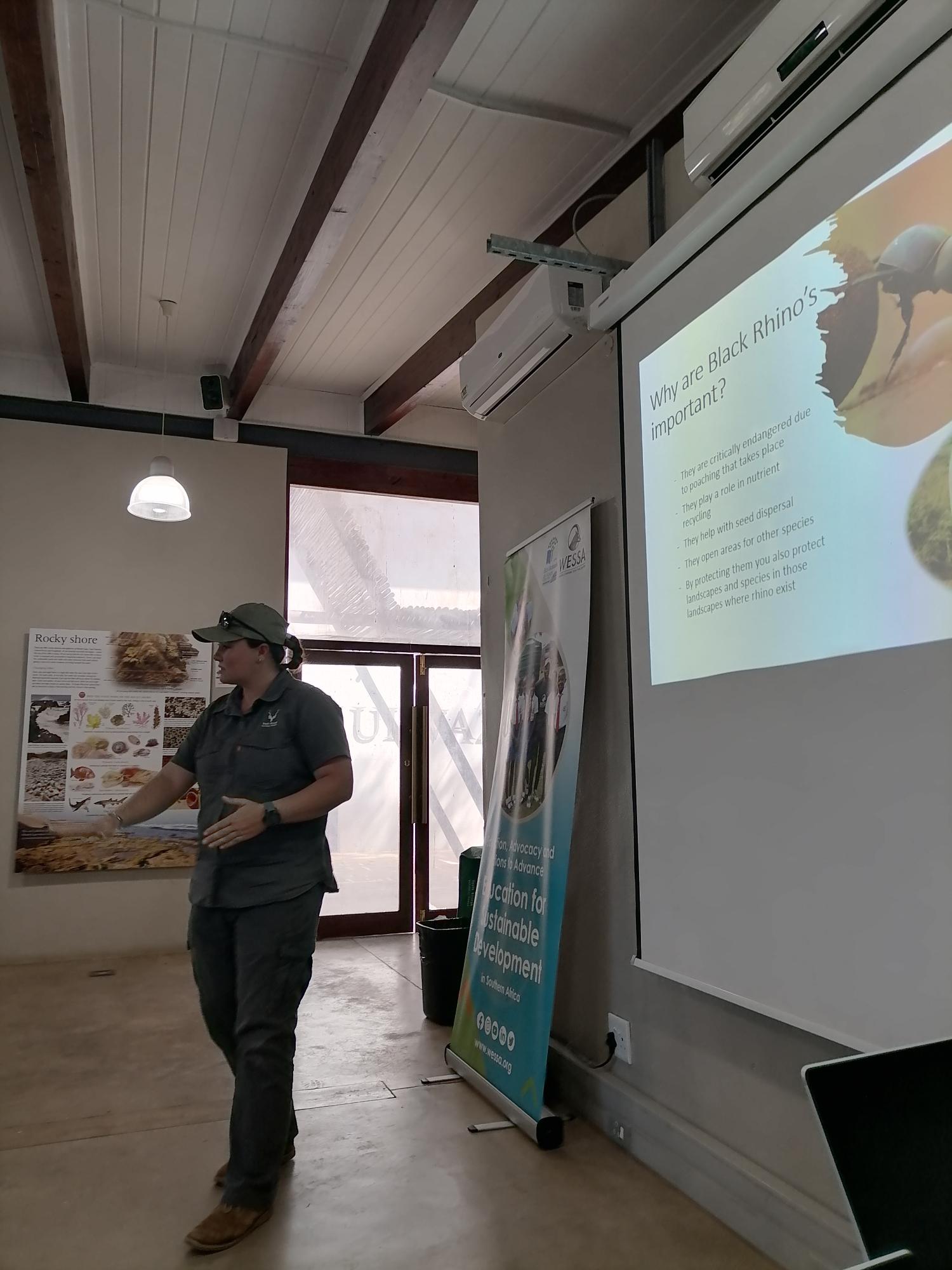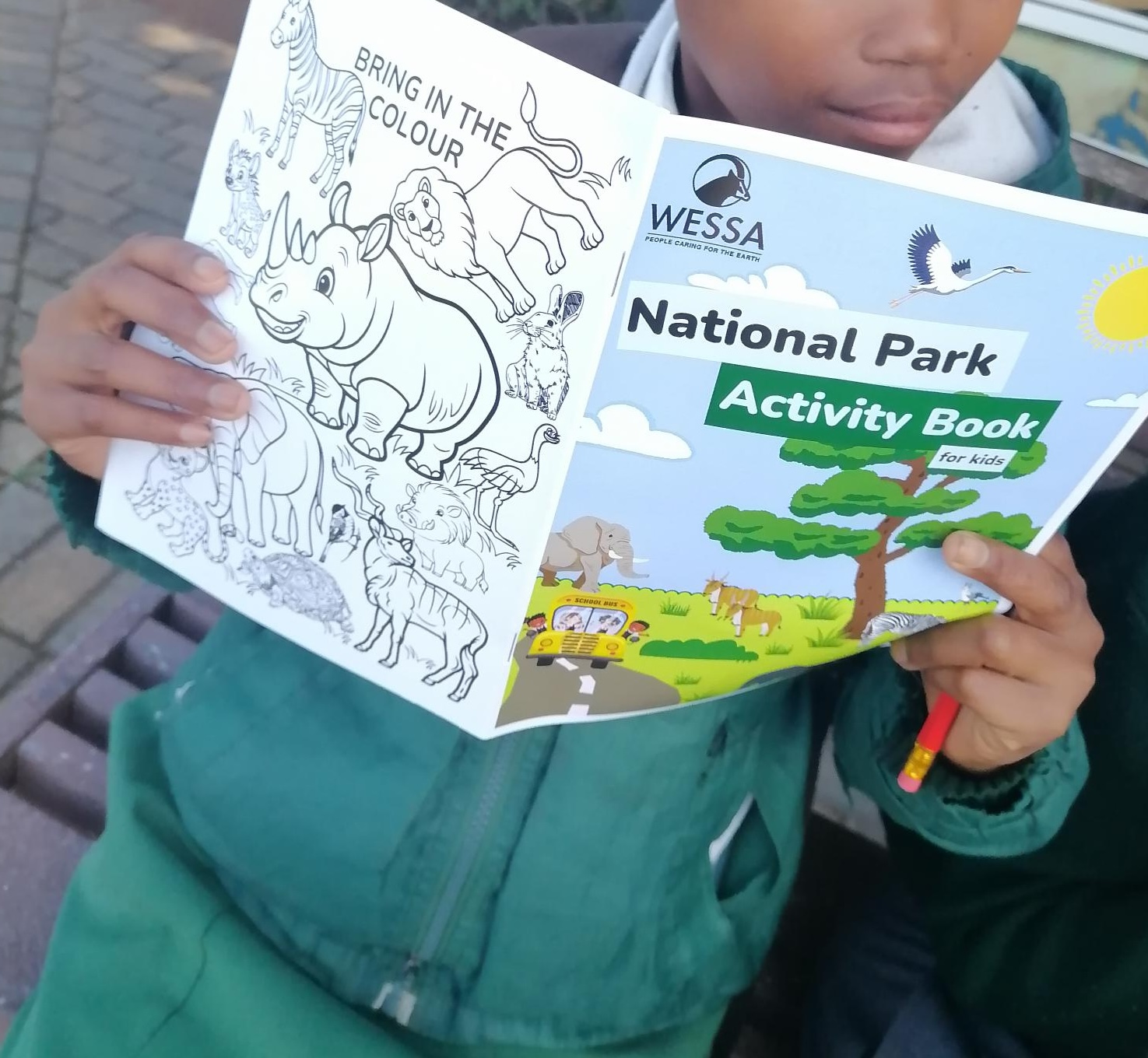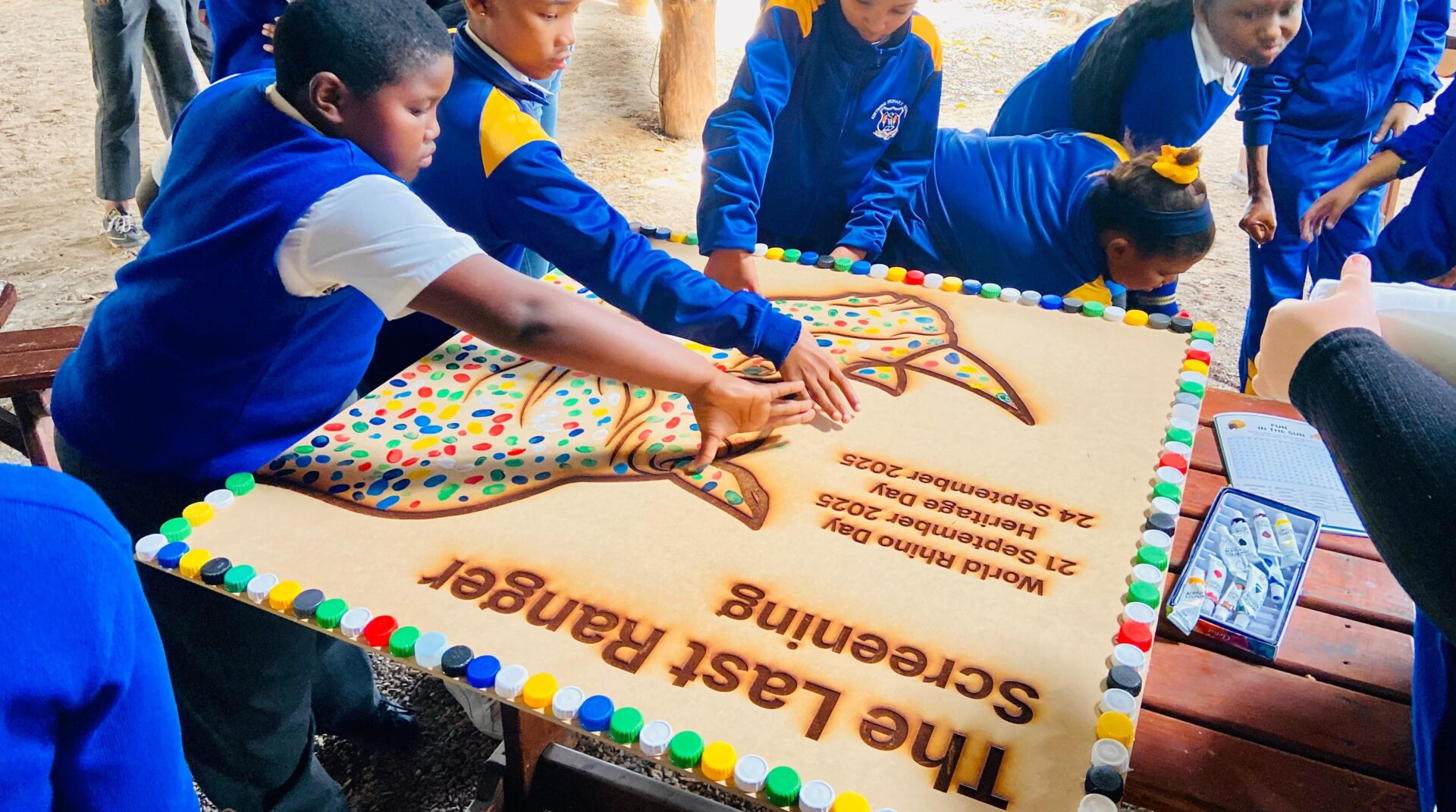300 learners were recently treated to an immersive day of environmental learning and getting in touch with the urgent challenges facing our wildlife. Through film and a visit to Addo Elephant National Park, every youngster left with a renewed sense of responsibility toward protecting South Africa’s rich natural heritage.
Eastern Cape, South Africa (01 October 2025) – Sometimes the best way to engage and inspire young minds is through film and captivating experiences.
The Wildlife and Environment Society of South Africa (WESSA) created an unforgettable experience for 300 young learners in honour of World Rhino Day (22 September) and Heritage Day (24 September).
These students, drawn from six schools surrounding the Addo Elephant National Park: La Trobe Primary, Vusumzi Primary, AV Bukani Primary, Addo Primary, Moreson Primary, and Rietberg Primary, were invited to a special screening of The Last Ranger.
This powerful film not only highlights the urgent challenges facing our wildlife but also celebrates the courage and dedication of those who protect them.
More Than Just a Film Screening
Each learner had the opportunity to experience the beauty of the Addo Elephant National Park first-hand, enjoy a nutritious meal, and take part in an engaging Q&A session with a conservation expert, who shared personal stories and insights from their journey in protecting South Africa’s natural heritage.
This interactive exchange inspired curiosity and allowed learners to connect deeply with the realities of conservation. Following the discussion, the learners embarked on a guided drive through the park, where they were thrilled to spot a variety of animals in their natural habitat.

According to the WESSA team, the film’s themes of courage, resilience, and community resonated strongly with the learners. It sparked meaningful conversations about their role in safeguarding the environment and ignited aspirations, with many expressing interest in pursuing careers in conservation.
The screenings left a strong impression on the young audience. Their feedback reflected the courage and resilience shown in the film. As one learner put it:
“My favourite part of the movie was when the woman sacrificed her life for the rhino.”
Another added:
“When the ranger told the young girl, ‘You are very strong,’ it inspired me not to give up on my dreams.”
WESSA’s Head of Education and Sustainability, Kelly Alcock, said that through these screenings, young people were introduced to potential career pathways in the green economy, including biodiversity conservation, environmental management, waste innovation, as well as sustainable agriculture.
“WESSA does this by building early awareness of environmental challenges and the role youth can play, as well as introducing future-focused skills and knowledge,” Alcock added.

Thanks to the generous support of WESSA’s donors and strategic partners – including South African National Parks (SANParks), the International Union for Conservation of Nature (IUCN), Kindred Films, Nedbank, and the NOA Group – 300 learners had the opportunity to explore a whole new world, which they will hopefully help to preserve in the future.
WESSA CEO, Cindy-Lee Cloete, said the screening offered an incredible moment for inclusive conservation strategies in South Africa.
“It links South African youth to the real-life experiences of the conservation of our natural heritage – in this case, our rhinos. I would like to thank the team at Kindred Films who supported us to have these important conversations, using The Last Ranger film as the tool to Educate, Advocate and Act for a collective conservation. To our SANParks colleagues at Addo Elephant National Park, this would not have been possible without your partnership – what a way to kick off SANParks Week.”
WESSA remains committed to facilitating programmes that educate and empower South African youth to advocate and act in protecting their environments. Enabling them with the knowledge, experiences, and inspiration to become tomorrow’s environmental leaders.


